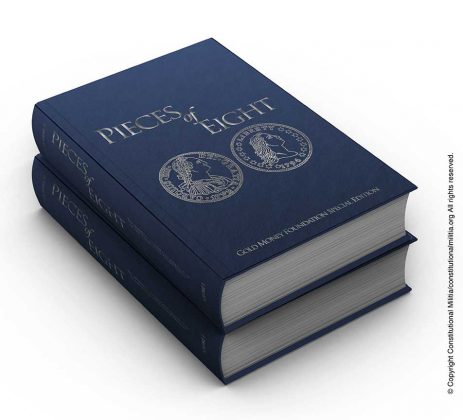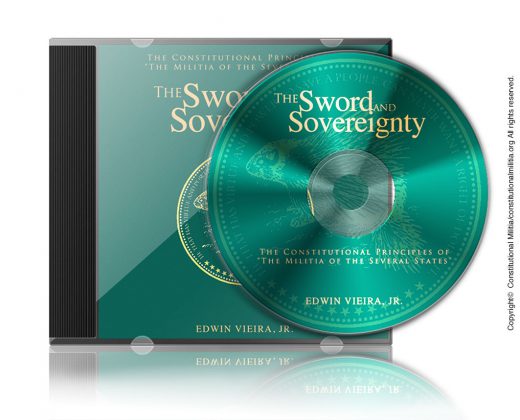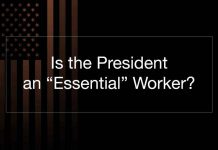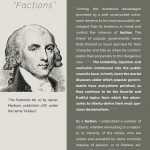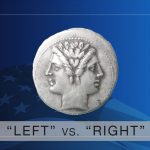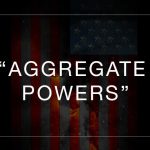Last Updated on January 22, 2021 by Constitutional Militia
It seems that, almost every day, new evidence emerges to validate as prescient the warnings I put forth most recently in my NewsWithViews commentaries “The Irrelevant Second Amendment” and “Another Oracular Pronouncement”—namely, that: (i) in the “weapons-of-war” theory applied in the Kolbe v. Hogan and Worman v. Healey decisions “gun-control” fanatics have hit upon a rhetorically powerful rationalization for actually banning (not simply “regulating”) the very types of firearms which the Second Amendment should most emphatically protect; and (ii) as those decisions prove, the “individual-right” theory of the Amendment provides only an impotent (indeed, an irrelevant) counter-argument.
The latest manifestation of this unsettling development appears in a recent report that Bank of America has announced that it will no longer make loans to, underwrite securities for, and (presumably) otherwise conduct normal banking business with manufacturers which produce and sell so-called “military-style” firearms for civilians’ use. See, e.g., [Link]
To be sure, it is conceivable that Bank of America might determine that a particular manufacturer of firearms under particular circumstances fell so far short of meeting generally recognized standards of (say) solvency, profitability, and sound corporate management as to justify the Bank’s denial of various banking services in that case pursuant to normal banking policy applicable to everyone else. It is self-evidently absurd to assume, however, that Bank of America (or anyone else) could possibly make such a negative determination in the present as to all manufacturers of “military-style” firearms as a class and with respect to every imaginable set of circumstances which might arise in the future. Therefore, Bank of America must be predicating its action, not on a contingently commercial, but on a fixedly ideological, decision. Bank of America has apparently concluded, not that “military-style” firearms for civilian sale can never be manufactured so as to earn profits sufficient to justify the Bank’s conducting normal business with such manufacturers—but (i) that such firearms should not be manufactured and sold at all for civilians’ use, notwithstanding that a significant part of the general public is ready, willing, and able, both legally and economically, to purchase these firearms in the free market; and (ii) that Bank of America should and will do whatever it can to discourage, hinder, and even eliminate such manufacture and sale.
Plainly enough, Bank of America has set out to interfere with, curtail, and even stifle entirely a particular form of legitimate and profitable commerce. If Bank of America can take such economically arbitrary action with respect to the manufacture and sale of certain types of firearms desired by many ordinary Americans, then all banks can do so, with respect not only to those firearms, but also to any and all others. And if banks as a class can take such action with respect to the manufacture and sale of firearms, they can do so with respect to the products and services of any and every legitimate business. Thus, relying on the old adage that “money talks”, Bank of America is declaring no less than that banks are entitled to behave as the veritable arbiters of American domestic commerce—today, with respect to certain firearms which bankers particularly disfavor; tomorrow, with respect to anything and everything that may fall afoul of their peculiar ideological notions.
So what is to be done about this situation?
I. The naïve patriotic response of Americans concerned with preserving “the right of the people to keep and bear Arms” would be to appeal to Bank of America’s concern for the Constitution—in general, for “the Blessings of Liberty” which the Preamble identifies as one of the Constitution’s permanent goals; and, in particular, for “the right of the people to keep and bear [specifically ‘military-style’] Arms” for defense of their “Libert[ies]” which the Second Amendment guarantees against “infringe[ment]”. This approach would surely prove to be futile, though. For it is an observation as accurate as it is hoary that merchants—and especially bankers—have no country. And having no country they have no fixed concern for any country’s constitution or laws. Merchants—and especially bankers—respect a nation’s constitution and laws only to the extent that the legal principles they embody can be bent to serve the merchants’ special interests. Indeed, if America’s bankers gave a tinker’s dam about this country’s Constitution, they would refuse to operate as member-banks in the Federal Reserve System—arguably as gross an affront to the Constitution as can be imagined. See my book Pieces of Eight: The Monetary Powers and Disabilities of the United States Constitution (GoldMoney Foundation Special Edition [2011] of the Second Revised Edition, 2002).
II. The naïve economic response of Americans concerned with preserving “the right of the people to keep and bear Arms” against economic sabotage would be to employ the supposed restraining and retributive powers of “the free market” by organizing a sustained nationwide boycott of Bank of America (and every other bank which followed its lead). Such a boycott would, of course, be constitutionally protected. See NAACP v. Claiborne Hardware Co., 458 U.S. 886 (1982). But it, too, would likely turn out to be no more than an exercise in wishful thinking. After all, as far as banks in general are concerned, Americans are not blessed with a “free market”. Unfortunately, under contemporary conditions banks are necessary evils which most Americans are not really “free” to refrain from using. Banks are necessary, because ordinary Americans have no practical choice but to employ some bank for business or personal purposes. And with respect to “the right of the people to keep and bear Arms” all too many banks are evils, because all too many bankers (at least in the uppermost tiers of that business) are generally anything but friends of that “right”. In aid of attacks on the Second Amendment banks are free to exercise the immense financial power that derives from their oligopolistic position. Ordinary Americans, on the other hand, are “free” only to like it or lump it, but in any event to learn to live with it.
In particular, buoyed by its immense resources Bank of America is probably willing to forego doing nickle-and-dime business with those “deplorable” American “gun nuts” who might opt to boycott it. No doubt the Bank already has evaluated the possible economic downside from a boycott, and discounted it.
Moreover, whatever the possibility of organizing a suitably punishing boycott of Bank of America alone, a boycott would be exceedingly difficult, if not impossible, to sustain should other banks in large numbers align themselves with Bank of America. By acting more or less in unison, the bankers would predictably be able to apply far more financial pressure against owners of firearms among the general public than those Americans could apply to the banks.
III. Obviously, a legislative response to Bank of America’s actions would offer a better chance of success than either a quixotic appeal to bankers’ patriotism or a problematic boycott. Bank of America has set out to dam the stream of legitimate commerce in certain firearms on a nationwide scale. Such is not its, or any bank’s, prerogative, however. In Article I, Section 8, Clause 3 (the Commerce Clause) the Constitution empowers Congress, not Bank of America (or any bank), “[t]o regulate Commerce * * * among the several States”. So how might a Congress concerned with protecting “the right of the people to keep and bear Arms” employ the Commerce Clause to thwart Bank of America’s obnoxious new policy?
A. The first inquiry must be “What has Congress already done which might now be thought to be potentially useful?” For one thing, Congress has enacted antitrust laws. If, as might be expected, banks agreed in unison to deny their services to manufacturers of “military-style” firearms supplied to the civilian market, then the Sherman Act’s prohibition of “contracts, combinations, or conspiracies in restraint of trade” could come into play, at least in principle.
In practice, however, proving actual collusion among those banks would likely pose a daunting problem. For, tutored in subterranean machinations by skulks of vulpine lawyers adept at secreting the evidence of their clients’ questionable activities, bankers driven more by ideology than by profits could successfully contrive to act in an ostensibly “independent” manner. Perhaps a sufficiently aggressive investigation would shine enough light into the banks’ dark corners to expose the truth. But, even were actual collusion made evident, would typical prosecutors in today’s Department of Justice and judges in the General Government’s courts—all too many of whom are as antagonistic to “the right of the people to keep and bear Arms” as they are well disposed towards the banks—be expected to do anything about it? Hardly.
B. The next inquiry is “What new legislation might Congress enact under the Commerce Clause in order to bring errant banks to heel? History provides an answer.
Although they were then (as they are now) private businesses, places of so-called “public accommodation” (such as hotels, motels, restaurants, and so on) were considered so vital to unimpeded “Commerce * * * among the several States” that in the Civil Rights Act of 1964 Congress employed the Commerce Clause to prohibit them from engaging in racial discrimination. This was perhaps not a wholly surprising development even at that time, inasmuch as Americans’ right to be protected against racial discrimination had long been and was then (as it is now) guaranteed by the Constitution in other areas. But “the right of the people to keep and bear Arms”—including especially “military-style” firearms, according to the Supreme Court’s decision in United States v. Miller, 307 U.S. 174 (1939)—is no less constitutionally secured. And although they too are private businesses, banks are self-evidently enterprises of “public accommodation” which are so much more vital to unimpeded “Commerce * * * among the several States” than run-of-the-mill hotels, motels, and restaurants that Congress could fairly prohibit them from engaging in discrimination driven by the bankers’ ideological disapproval of manufacturers of “military-style” firearms for ultimate sale to ordinary civilians under the aegis of “the right of the people to keep and bear Arms”.
Interestingly enough, Congress’s employment of the Commerce Clause for that purpose would not need to be explicitly linked to that “right” at all. For, as lawyers know, in most instances a statute enacted under the Commerce Clause is constitutionally valid if any so-called “rational basis” for the legislation can be adduced. And, even leaving “the right of the people to keep and bear Arms” aside, surely a “rational basis” exists for concluding that “Commerce * * * among the several States” would be seriously impaired were banks allowed to refuse to provide their services to any manufacturers of any legitimate products, not on the grounds of some generally accepted commercial or other economic standard applicable to all of the banks’ customers without distinction, but solely on the basis of a peculiar ideological hobbyhorse (no matter what it may be) which the bankers were riding at the time to the detriment of some disfavored class of customers.
Whatever Congress’s rationale for employment of the Commerce Clause, the banks should not be suffered to complain about such a statutory restriction on their invidiously discriminatory misbehavior. For they are already highly regulated under the Commerce Clause, mainly for the perverse purpose of supplying them with abusive special privileges more than merely arguably against the public interest—including the entire Federal Reserve System, “deposit insurance” designed to prop up their use of the inherently unsound scheme of “fractional reserves”, and periodic “bail outs” with taxpayers’ money when their imprudent business practices give rise to nationwide financial crises. If the Commerce Clause licenses Congress to lavish such unmerited and highly questionable favors on banks, it undoubtedly authorizes Congress to deprive the bankers of the ability to withhold their services from legitimate businesses which happen to arouse their ideological displeasure.
IV. Although legislation enacted pursuant to the Constitution’s general grant of power in the Commerce Clause could suffice to bring arrogant “virtue-signaling” bankers to heel, the better, because more constitutionally specific, remedy would be for Congress to protect “the right of the people to keep and bear Arms” against economic subversion by focusing on the first thirteen words of the Second Amendment—namely, “[a] well regulated Militia, being necessary to the security of a free State”—implemented through Congress’s power in Article I, Section 8, Clause 16 of the Constitution “[t]o provide for * * * arming * * * the Militia”.
At the present time, a Congressional statute asserts that everyone eligible for “the militia of the United States” who is not a member of the National Guard is automatically enrolled in “the unorganized militia”. 10 U.S.C. § 246. For “[a] well regulated Militia” to function as the Constitution requires, Congress must guarantee at least that all citizens eligible for the Militia have ready access to “Arms” suitable for Militia service—amongst which class of “Arms” “military-style” firearms are self-evidently of the greatest potential importance, in light of the responsibility of the Militia “to * * * repel Invasions” set out in Article I, Section 8, Clause 15 of the Constitution.
The Constitution does not specify exactly how Congress is “[t]o provide for * * * arming * * * the Militia”. In keeping with the pre-constitutional practices which defined the concepts of “arming” and “Arms” at the times of ratification of the Constitution (1788) and the Second Amendment (1791), today Congress could direct some agency in the General Government to disburse suitable “Arms” to “the people” eligible for the Militia. Or it could direct the States to provide such “Arms”. Or it could direct those individuals to supply themselves with particular “Arms” through the free market. Or it could simply allow all such Americans to purchase from domestic manufacturers whatever “Arms” they themselves deemed sufficient—in practical effect, the situation which obtains today (albeit only imperfectly so). See my book Constitutional “Homeland Security”, Volume Two, The Sword and Sovereignty: The Constitutional Principles of “the Militia of the Several States” (Front Royal, Virginia: CD-ROM Edition, 2012).
Obviously, however, Congress could not “provide for * * * arming * * * the Militia” by inhibiting citizens eligible for the Militia from procuring—if in no way other than through their own efforts—“Arms” which would enable them to perform one or another form of Militia service to which Congress has made them liable by statutorily enrolling them in “the unorganized militia”. Neither may it sit idly by while private special-interest groups such as banks attempt to frustrate the constitutional mandate that the Militia be “arm[ed]”. The Constitution, after all, is not a schizophrenic screed. By no conceivable rational reading does it allow Congress to apply the Commerce Clause to underwrite the economic power of banks, so that bankers through their misuse of that power can intentionally set about to defeat the Militia Clauses, and thereby undermine “the security of a free State”. Therefore, Congress can, should, and must regulate banks so as to ensure that they do not interfere in the operation of the free market for firearms, and are suitably punished if they attempt to do so.
A statute sufficient for that purpose would prohibit banks from denying their services to any present or potential customer solely because that customer were a manufacturer, distributor, retailer, or purchaser of “military-style” firearms offered for sale to civilians. The statute would create a civil cause of action for any such customer against whom a bank so discriminated. And the statute would establish a presumption that a bank’s denial of any of its services in such a case were for the purpose of illicit discrimination, would provide for significant statutory damages in every case in which discrimination were established (in addition to whatever compensatory damages might be proven in each particular case), and would mandate the assessment of attorneys’ fees and costs in favor of the complainant.
The advantage of a statute bottomed explicitly on protection of “the right of the people to keep and bear Arms” suitable for Militia service would be its disapprobation of the obnoxious theory put forward in Kolbe v. Hogan and Worman v. Healey that ordinary Americans enjoy no constitutional right to possess firearms which rogue judges denounce as “weapons of war”. The constitutional authority of Congress in Article I, Section 8, Clause 15 “[t]o provide for calling forth the Militia to * * * repel Invasions” self-evidently foresees the necessity for citizens statutorily enrolled in the Militia to be armed precisely with “weapons of war”. And the necessity for citizens statutorily enrolled in the Militia to be armed with “weapons of war” self-evidently defines the most important class of “Arms” which the Second Amendment—read in its entirety—protects against “infringe[ment]”. The sooner the American people, through the efforts of their loyal representatives in Congress, ram that reality down rogue judges’ throats the better.
In sum, this would be a relatively straightforward, and undeniably constitutional, means to thwart what will prove to be—if nothing is done to prevent it—a deadly serious inroad by banks on “the right of the people to keep and bear Arms”. Moreover, in light of the orchestrated hysteria in favor of “gun control” now sweeping this country in the wake of the school shooting in Parkland, Florida, one can anticipate that, if banks are suffered to misuse their privileged positions to attack that “right”—first against manufacturers of “military-style” firearms, then against distributors, retailers, and even private citizens desirous of purchasing such “Arms” with bank-issued credit cards—other centers of private economic power will soon follow suit. Insurers will deny, or radically increase the cost of, coverage to homeowners who possess such “Arms”. Health-care plans will claim that the possession of such “Arms” by their subscribers so imperils the subscribers’ physical or psychological well-being that onerous additional charges must be levied for the plans’ services, if they are made available at all. Prestigious private schools at every level in this country’s educational system will exclude from enrollment present or prospective students who live in homes in which such “Arms” are kept. And so on—with no discernible limit, until private citizens’ possession of “military-style” firearms becomes a thing of the past, and with it “the security of a free State”, too.
These possibilities present a clear and present danger to “the right of the people to keep and bear Arms” which cannot be met by rote invocation of the “individual right” to possess “military-style” firearms, which Kolbe v. Hogan and Worman v. Healey held not to be protected by the Second Amendment at all. Only by asserting Americans’ “Militia right” to possess such “Arms” can such possession be adequately secured against “gun control” fanatics and the rogue jurists who dance to their discordant tune. Time for bringing this assertion to the forefront of the countrywide shouting-match over “gun control” is rapidly running out, however.
I should hate to have to say “I told you so” when it was too late for effective action to be taken. But I have told you so, more than once—and it may soon be too late for anything else to be said.
©2018 Edwin Vieira, Jr. – All Rights Reserved.





























